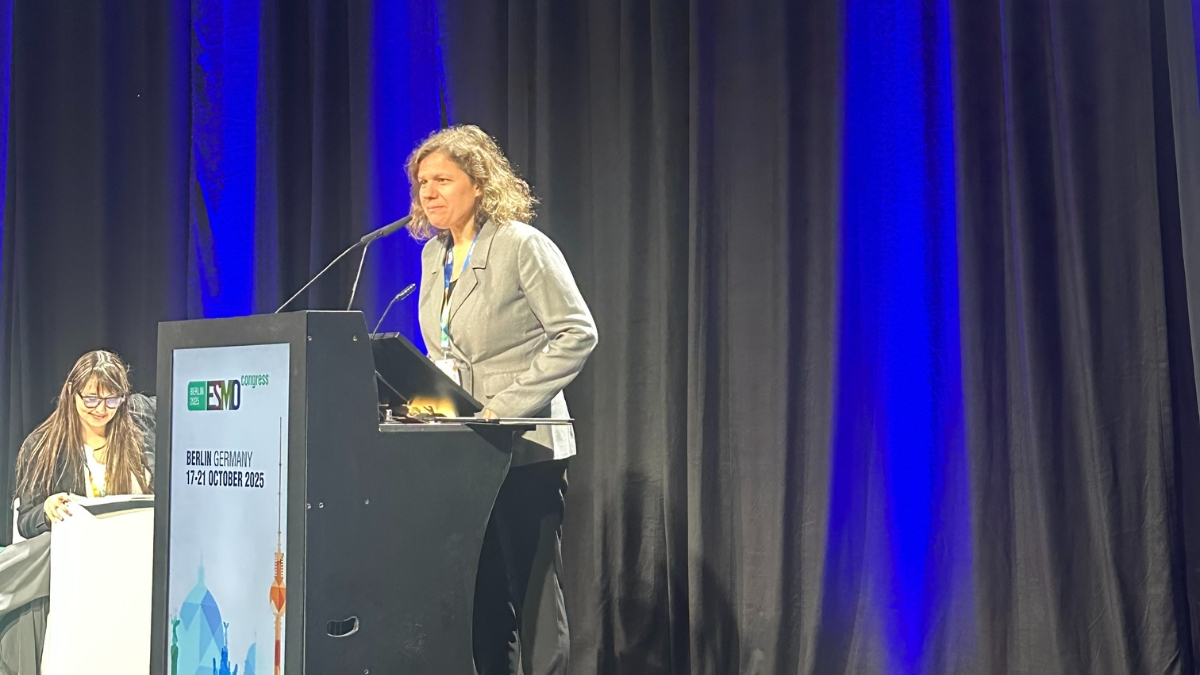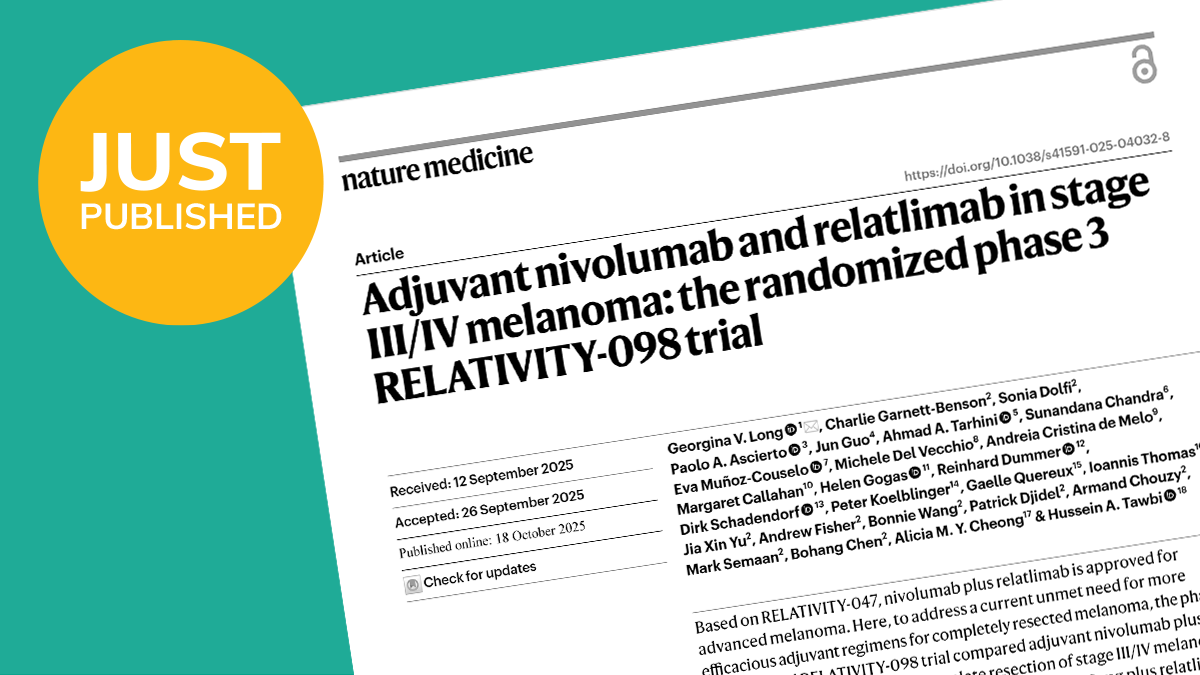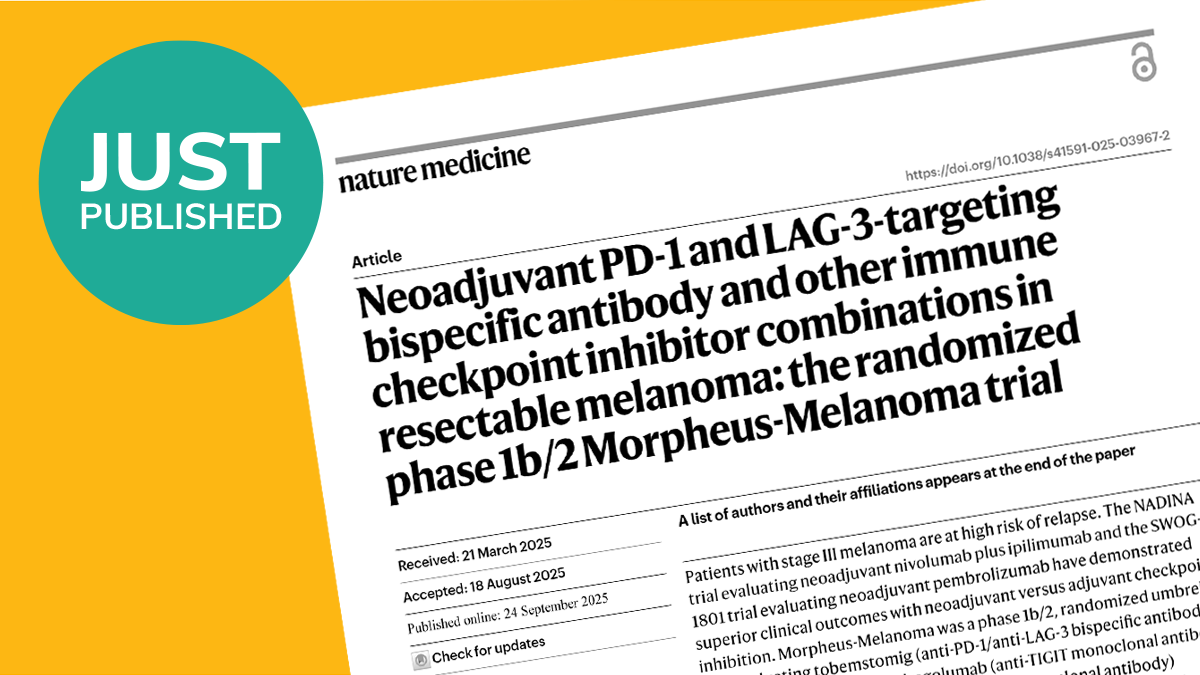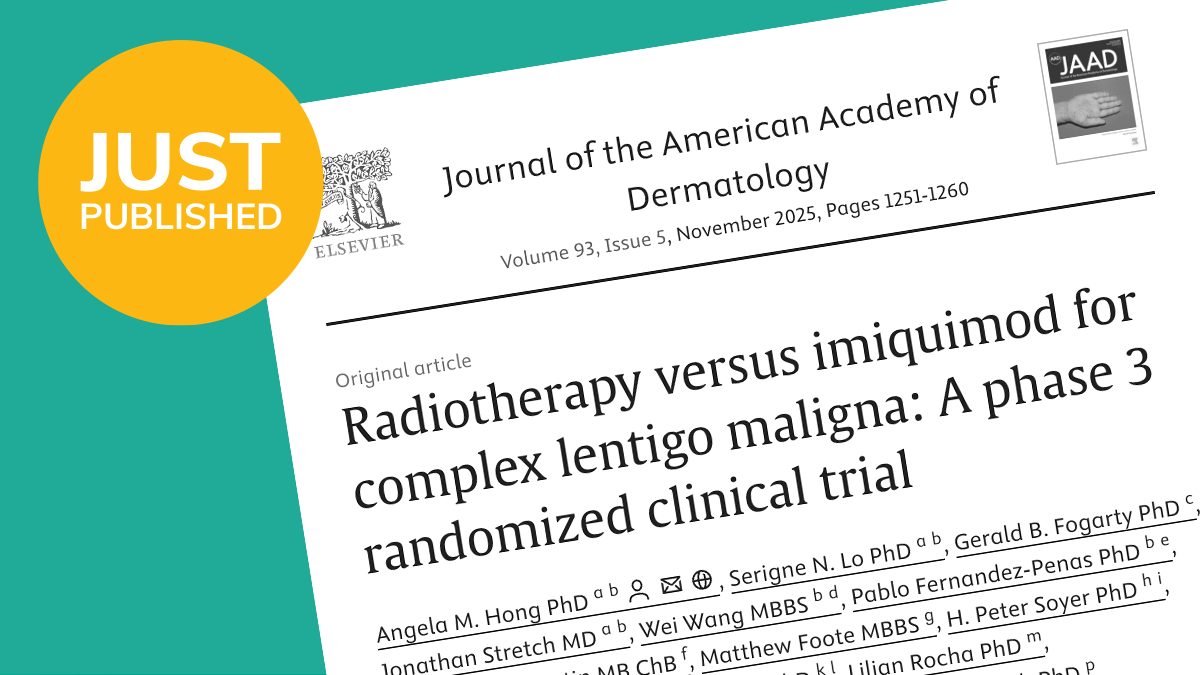In a breakthrough which could extend to the treatment of other cancers, a new immune checkpoint inhibitor has proven effective in helping save the lives of advanced melanoma patients.
Relatlimab is the first immunotherapy treatment to target LAG-3, a protein in immune cells which reinvigorates and enhances the tumour fighting response.
Immune checkpoint inhibitors targeting the CTLA-4 and PD-1 proteins have revolutionised treatment of advanced melanoma over the past seven years. These treatments are most effective when used in combination, but this tends to increase their toxicity. Some 50% of patients either do not respond, or develop resistance, to these treatments and therefore it is vital that new treatments are developed.
Melanoma Institute Australia (MIA) Co-Medical Director, Professor Georgina Long AO of The University of Sydney, said the successful trial of relatlimab, targeting the LAG-3 protein, makes it a critical new weapon in the fight to save all lives from melanoma.
‘This drug gives us a third immune checkpoint inhibitor to add to the treatment toolkit which may be the difference between survival or not for melanoma patients around the world,’ Professor Long said.
‘Immunotherapy harnesses the body’s own immune system to fight the cancer cells and having a third immune checkpoint inhibitor means we can potentially make inroads in saving the 50% of advanced melanoma patients who don’t respond to current treatments.
‘Australian researchers and patients were critical to trialling this new treatment which has very real potential to also extend to other cancers.’
The findings from the RELATIVITY-047 trial will be presented this weekend at the American Society of Clinical Oncology (ASCO) Annual Meeting. Professor Georgina Long is senior lead author for the international trial and MIA was a leading contributor of patients for the study.
Results showed that in previously untreated advanced melanoma patients, combining relatlimab with nivolumab (an immune checkpoint inhibitor targeting the PD-1 protein) doubled the progression free survival time compared to the use of nivolumab alone (10.1 vs 4.6 months respectively). At one year, almost 50% of patients on the combination therapy had no disease progression, whereas nearly two-thirds of patients on the single therapy had progressed. Importantly, the combined therapy was also far less toxic to patients.
‘Immunotherapy has already transformed the treatment of melanoma and other cancers, with anti-PD-1 therapies leading the way,’ Professor Long said.
‘This new immune checkpoint inhibitor that targets LAG-3, and its proven effectiveness when used in combination, improves outcomes for melanoma patients even further and will likely impact cancer treatment globally.’
Melanoma Institute Australia is affiliated with The University of Sydney and Professor Long co-leads the Translational Research Group at the Charles Perkins Centre.
Watch Prof Georgina Long AO and melanoma survivor Andrew Bennett when the breakthrough was announced on Channel 9 news:






Thank you Geogina and your wonderful team on the brilliant work and incredible breakthroughs you are achieving for us.
We wish you success and trust your research will benefit all we melanoma sufferers.
Thank you.
Kerry
Thank you so much for your lovely comment Kerry, from all of us at MIA!
Having had 2 very small melanomas . It has always terrified me if I should have one that spreads uncontrollably . So pleased that you have got this drug on the market . Thank you now there is hope for melanoma sufferers .